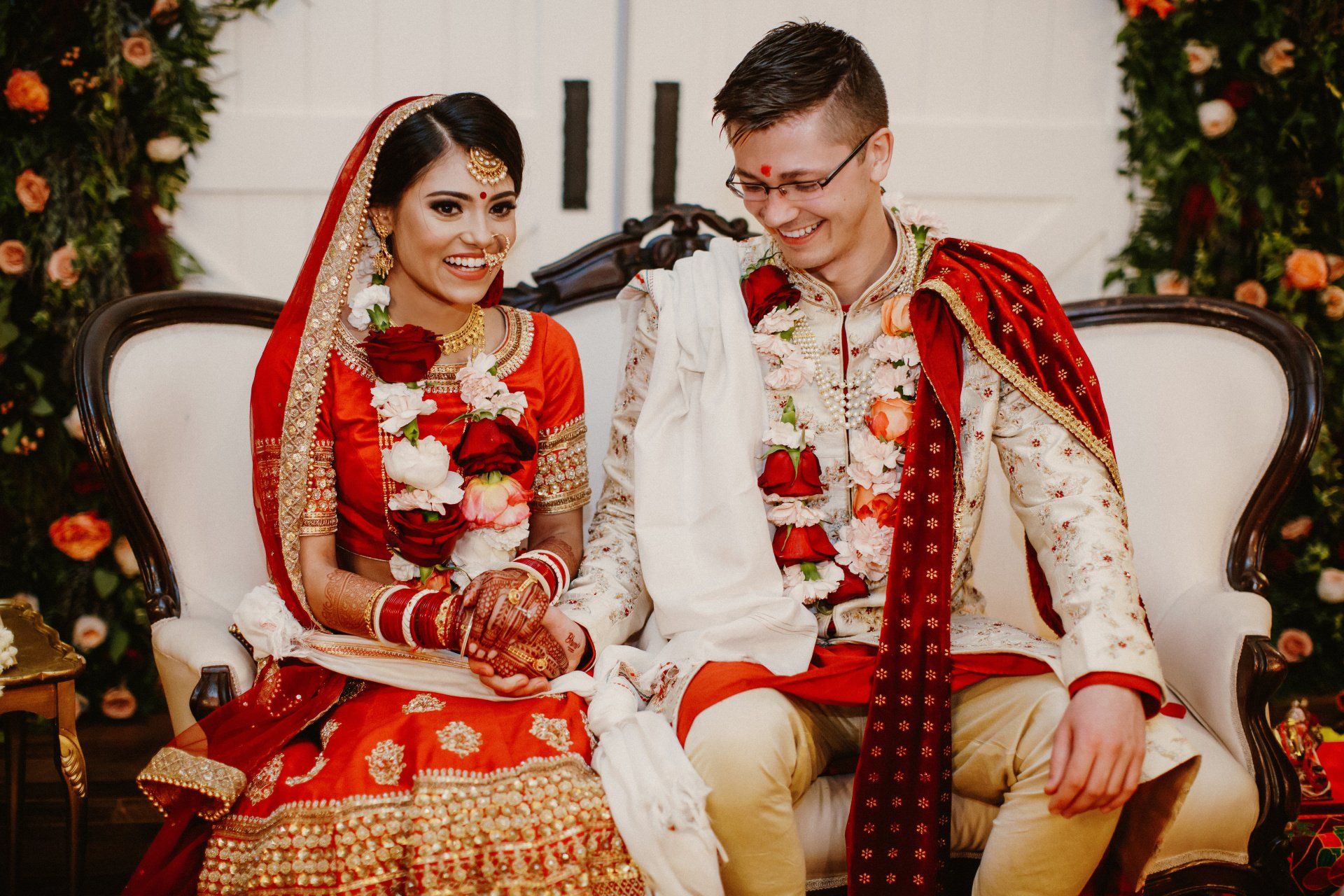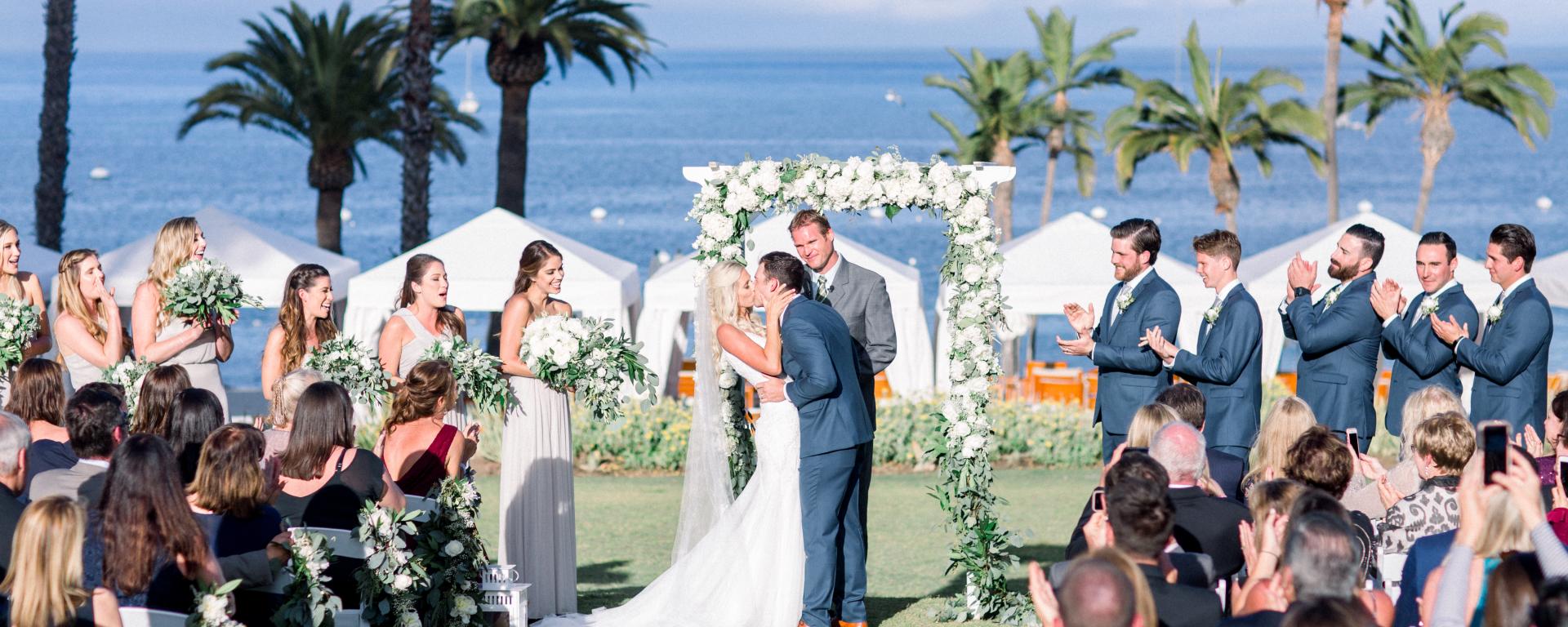Weddings and What they signify.

A wedding is a ceremony that celebrates the act of two people getting married. It's a joyous occasion that marks the beginning of their life together as a couple. Here's a breakdown of what a wedding entails:
- Celebration of Love: Weddings are celebrations of love and commitment between two partners. The ceremony typically involves exchanging vows, which are promises the couple makes to each other for their married life.
- Public Declaration: It's a public declaration of the couple's marriage. Sharing their vows and exchanging rings in front of witnesses and loved ones signifies the seriousness of their commitment.
- Varies by Culture: Traditions and customs around weddings vary greatly depending on culture, religion, location, and personal preferences. A wedding can be a grand or intimate affair, formal or casual.
- Ceremony and Reception: The core of a wedding usually consists of two parts: the ceremony itself, where the couple gets married, and the reception, which is a party to celebrate with guests.
- Evolving Traditions: Wedding traditions are constantly evolving. While some couples choose to follow classic traditions, others incorporate unique touches or elements from their backgrounds to make it personal and meaningful for them.
There are two main ways to categorize weddings: by ceremony type and by style.
By Ceremony Type:
- Religious: These weddings are officiated by a religious leader and incorporate the traditions of a specific faith.
- Civil: Civil ceremonies are performed by a government official and are the legal requirement for marriage.
By Style:
There are various styles of weddings. Some common types include:
1. Traditional Wedding: This type of wedding follows established customs and rituals, often involving a religious ceremony in a church or other place of worship, a white wedding dress, and a formal reception with speeches, a cake-cutting ceremony, and a first dance.
2. Destination Wedding: Couples choose to get married in a different location, often a romantic or exotic place, requiring guests to travel. These weddings can be intimate or large, and may include additional activities like a pre-wedding event or a honeymoon at the same location.
3. Beach or Outdoor Wedding: These weddings take place in natural settings, such as beaches, gardens, parks, or other outdoor venues. They often have a relaxed and informal atmosphere, with elements like sand ceremonies, beach-themed decorations, or live music from local artists.
4. Cultural or Religious Wedding: Couples may choose to incorporate their cultural or religious traditions into their wedding ceremony and celebration. Examples include Indian weddings with colourful ceremonies, Jewish weddings with the breaking of the glass, or Chinese weddings with the tea ceremony.
5. Elopement: A small, intimate wedding with just the couple and perhaps one or two witnesses. Elopements are often spontaneous, secretive, and symbolize a desire for privacy and a focus on the couple's love for each other.
6. Vow Renewal: A ceremony where married couples reaffirm their commitment to each other, often after a significant anniversary or milestone. These ceremonies can be simple or elaborate and may include family and friends.
7. Themed Wedding: Couples may choose to have a wedding with a specific theme, such as a vintage, fairy-tale, or rustic theme. The decorations, attire, and even the food may be tailored to the chosen theme, creating a unique and memorable experience for the couple and their guests.
8. Civil or Non-religious Wedding: These weddings are conducted by a civil authority, such as a judge or registrar, without religious elements. They can be held in various venues and often involve personalized vows, readings, and other elements that reflect the couple's personalities and beliefs.
These are just a few examples, and there are many other types of weddings that can be tailored to suit the preferences and values of the couple.

Here's a breakdown of the key differences between two(2) types of weddings just to give a little insight; white weddings and traditional African weddings:
Focus:
- White Weddings: Typically center on the couple's vows and their union blessed by a religious figure (often Christian).
- Traditional African Weddings: Emphasize the union of families and ancestors' blessing, ensuring continuity and respect for cultural traditions.
Ceremony:
- White Weddings: Usually held in a church or a formal venue, with a focus on the vows and exchanging rings.
- Traditional African Weddings: Can vary depending on the specific culture, but often involve colorful attire, symbolic gifts (like dowry payments), blessings from elders, and lively music and dancing.
Attire:
- White Weddings: Bride traditionally wears a white dress, groom in a tuxedo or suit. Bridesmaids and groomsmen have coordinated outfits.
- Traditional African Weddings: Vibrant and diverse! Specific garments vary by culture, but often feature rich fabrics, headwraps, and intricate beadwork.
Legality:
- White Weddings: May or may not be legally binding depending on the location. Often followed by a civil ceremony to make it official.
- Traditional African Weddings: In some cultures, these ceremonies hold legal weight. They may be followed by a civil ceremony for additional legal documentation.
Modern Trends:
- White Weddings: Some couples are incorporating cultural elements or personal touches into their ceremonies.
- Traditional African Weddings: Some couples might choose a blend of traditional and modern elements, like a white wedding dress with a headwrap or a reception with a DJ alongside drumming.
The significance of a wedding ceremony can vary depending on the couple's beliefs and cultural background, but here are some general themes:
- Public Declaration of Commitment: The ceremony is a public declaration of the couple's love and commitment to each other. They exchange vows, symbolizing their promises and intentions for their life together. This public aspect can hold the couple accountable and strengthen their bond.
- Celebration of Love and Union: It's a joyous occasion to celebrate the love between the couple and the joining of their families. The ceremony brings together loved ones to share in the couple's happiness.
- Religious or Spiritual Significance: For many couples, the ceremony has religious or spiritual significance. It can be a way to seek blessings for their union and connect their marriage to a higher power.
- Symbolic Traditions: Many wedding ceremonies incorporate symbolic traditions that hold meaning for the couple and their families. Exchanging rings, lighting a unity candle, or jumping the broom can all represent different aspects of marriage.
- Milestone and Beginning: The ceremony marks a significant milestone in the couple's relationship. It's a rite of passage signifying the start of their life together as a married couple.
Overall, a wedding ceremony is a way for couples to express their love and commitment, celebrate with loved ones, and embark on their new chapter as a married couple. it is also important to note that most times the wedding ceremony is dedicated to the bride, since its describe as her day and not necessarily the groom's.
























![[LIVE] Engage2Earn: Dutton = MAGA](https://cdn.bulbapp.io/frontend/images/e12661b2-74fa-4cd8-b554-51be7f6fec4f/1)



